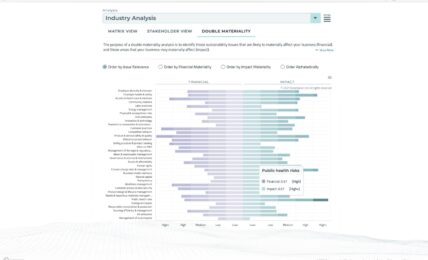The Science Based Targets initiative (SBTi), one of the key organizations focused on aligning corporate environmental sustainability action with the global goals of limiting climate change, announced the release of a series of research publications aimed at informing its new standard for corporate climate target-setting, with findings indicating that the new standard is unlikely to allow companies to use carbon credits to offset value chain emissions.
The apparent stance, based on cited findings describing carbon credits as “ineffective” that “carbon credits are ineffective in delivering their intended mitigation outcomes,” appears to be a step away from the use of carbon credits indicated earlier this year by the SBTi board, a move that generated significant controversy both within and outside the organization.
The SBTi was founded in 2015 with the goal to establish science-based environmental target setting as a standard corporate practice. The organizations’ key functions include defining and promoting best practice in emissions reductions and net-zero targets in line with climate science, providing technical assistance to companies who set science-based targets, and providing companies with independent assessment and validation of their emissions reduction targets.
The organization launched its flagship Corporate Net-Zero Standard in 2021, used to assess and certify companies’ decarbonization commitments to achieve net zero emissions and to act as a blueprint for companies’ science-based climate target setting. According to the criteria of the initial standard, science-based net zero would require decarbonization of 90-95% by 2050, with neutralization of residual emissions that are not yet possible to cut.
Earlier this year, the SBTi announced plans to revise the Corporate Net Zero Standard, including additional guidance on tackling Scope 3 emissions. While Scope 3 emissions, which occur in value chain areas outside of companies’ direct control, such as supply chain or use of products, are typically the most difficult to measure and manage, they also make up the vast majority of most companies’ emissions impact, often accounting for more than 90% of emissions overall.
Following a call for evidence issued by the SBTi on the use of environmental attribute certificates (EACs), such as carbon credits, the SBTi board in April 2024 announced plans to extend the use of EACs to tackle Scope 3 value chain emissions in the new standard.
Following the announcement, however, SBTi staff issued a letter indicating that they were “deeply concerned” about the plans, and reportedly called for the resignation of the CEO and board members. The SBTi board subsequently issued a clarification, stating that “any use of EACs for Scope 3 will be informed by evidence,” and that it plans to issue a discussion paper about the potential changes, prior to the drafting phase of the updated standard.
Last month, SBTi CEO Luiz Amaral resigned from the organization, citing personal reasons.
In a synthesis report released as part of the new research papers, SBTi highlighted studies that suggested that “various types of carbon credits are ineffective in delivering their intended mitigation outcomes.” Addressing the theme that carbon credits could help increase climate mitigation finance, the SBTi highlighted findings pointing to “clear risks to corporate use of carbon credits for the purpose of offsetting,” adding that it could have “the potential unintended effect of hindering the net-zero transformation and/or reducing climate finance.”
The synthesis report did note, however, limitations in the studies examining the effectiveness of carbon credits, including “the heterogeneity of different types of carbon credits and methodologies for quantifying mitigation outcomes associated with these credits,” adding that more evidence is needed in order to reach more conclusive results.
In a discussion paper setting out the SBTi’s initial thinking on potential changes being explored around scope 3 target setting, the SBTi emphasized that while the paper explores the use of EACs in science-based target setting, the carbon credit scenarios used in the paper “do not include offsetting emissions.”
Following the release of the papers, Alberto Carrillo Pineda, Chief Technical Officer at SBTi said:
“The outputs released today are a critical step in understanding how the SBTi can develop a more sophisticated approach to scope 3 to help more businesses set targets. The SBTi believes that direct decarbonization must remain the priority for corporate climate action and looks forward to the extensive public consultation on the draft Corporate Net-Zero Standard.”
The SBTi said that it expects to release a draft corporate net zero standard for consultation in late 2024.
Sue Jenny Ehr, Interim CEO, SBTi said:
“Targets are the first step to decarbonization and it is important that the SBTi conducts a comprehensive process to revise the Standard to help companies take the lead on climate action and drive down emissions.”
Click here to access the new publications.



